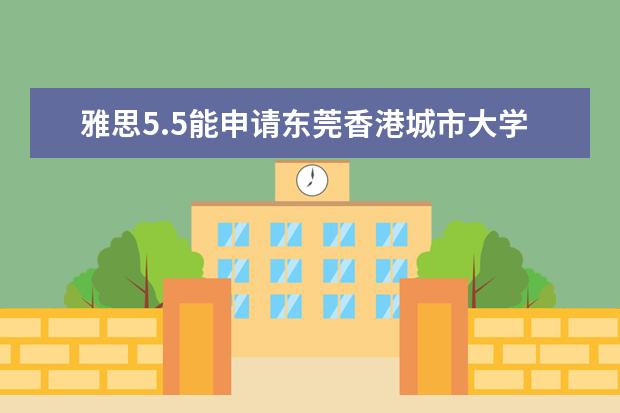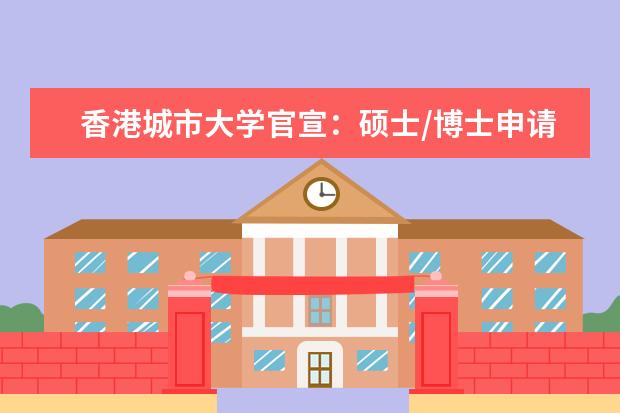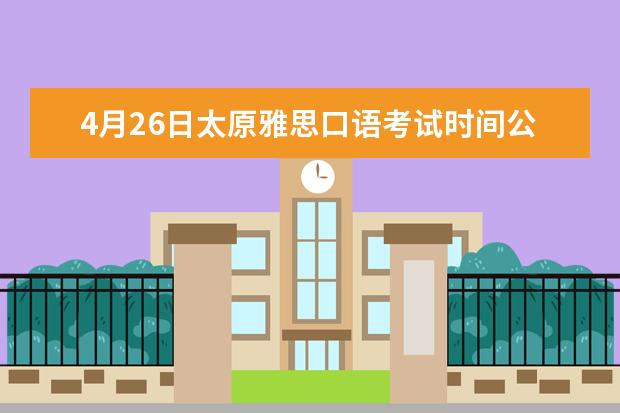当前城市:淄博[切换]
- 手机雅思无忧

扫码登录
雅思考试主要是通过对考生听、说、读、写四个方面英语能力的考核,综合测评考生的英语沟通运用能力,实现“沟通为本”的考试理念。对于雅思考生来说,也有很多考试难点和政策盲区需要帮助解答。今天雅思无忧网小编准备了雅思口语真题居住的城市 雅思口语考试 关于家乡的(重庆),希望通过文章来解决雅思考生这方面的疑难问题,敬请关注。
Home/Accommodation
1.Whatkind of housing/accommodation do you live in?
2.Doyou live in a house or a flat?
3.Whodo you live with?
4.Howlong have you lived there?
5.Doyou plan to live there for a long time?
6.(Ifyou answer you haven't lived there long) What's the difference between whereyou are living now and where you have lived in the past?
7.Canyou describe the place there you live?
8.Whichroom does your family spend most of the time in?
9.Whatdo you usually do in your house/flat/room?
10.Arethe transport facilities to your home very good?
11.Doyou prefer living in a house or a flat?
12.Pleasedescribe the room you live in.
13.What part of your home do you like the most?
Hometown
1.What's(thename of)your hometown(again)?
2.Is that a big city or a *all place?
3.Pleasedescribe your hometown a little.
4.Howlong have you been living there?
5.Doyou like your hometown?
6.(Possibly)Doyou like living there?
7.Whatdo you like(most) about your hometown?
8.Isthere anything you dislike about it?
9.Do you think you will continue living there for a long time?
更多雅思备搭唯迟考内容,环球青藤山轿资讯将及时与您分享。知李尽请关注!
雅思口语话题向来变化万千,其中生活类是最常考的话题之一,而目前在生活类话题中出现频率最高的一个方面就是关于城市和城市生活的问题。 通过对近期常考话题的密切关注我们发现,无论是第陵握一、第二还是第三部分,都涵盖着关于城市的话题,尤其是第二、三两部分。今天,天道留学小编就为大家详细地补充一些必备又不乏新意的专业表达,使考生们对于“城市”的话题更有话说,更有“新”话说。
关于城市,雅思口语常考查的内容有介绍一个城市(去过或没去过),大城市和小城市的区别,城市和农村的区别,城市生活的优缺点等等。
通过观察我们发现,考生们对于这类话题的表现差强人意,原因在于不知如何表达,甚至不知道说什么。接下来天道小编就详细的来补充一下关于城市的知识。就城市分类而言,题目中常用的词就是big
city 和*all city,而除了这些,metropolis大都市是最常用的表达,也可以用发达 (developed) 或不发达 (less
developed) 来划分城市。在中国,我们还分一线 (first-tier)、二线 (second-tier) 和三线 (third-tier)
城市。除此之外,我们还给城市冠了好听的名字,比如City of Perpetual spring(春城)等。当然,我们也会对城市进行排名,比如Liveable
City(宜居城市), Garden City(花园城市)等。
除了城市尺脊庆的名称,关于城市的一些基本构成也是众多烤鸭发愁的一个区块。
常用的表达有:city
hall(市*),city(城市),municipal(市政的),municipality(市政当局),suburb(郊区),countryside(乡村),administrative
district(行政区),residential area(住宅区),commercial
district(商业区),slums(贫民区);关于城市中的一些基本设施和服务,包括:post office(邮局),public
lavatory(公共厕所),public telephone(公用*),shopping centre(商场),snack bar(小吃店),stock
exchange(股票交易所),traffic light(红绿灯),art gallery(美术馆),botanical
garden(植物园),employment
agency(职业介绍),bank(银行),bookstore(书店),court(法院),highway(公路),motorway(高速公路),hospital(医院),junk
shop(旧货店),library(图书馆),museum(博物馆),newsstand(报摊),port(港口),restaurant(餐馆),skyscraper(摩天大楼),stadium(体育场),station(车站),theatre(电影院戏院)。
除了基本的构成之外,雅思口语最常考的内容还有对大小城市的优缺点做出比较,这里给大家列出几条供参考,大家应根据自己的自身经历做出取舍,野早自由搭配。一些具体的表达方式如形容词或词组考生也应牢记。
Pros of big cities:
Ø Big money at work, first-class education, a large transport network, fancy
restaurants and luxurious townhouses are definitely the charms(魅力)of big
cities.
Ø Life in big cities is endlessly colourful(无尽精彩)as you have a wide range of
entertainment.
Ø This city is steeped in(沉浸在)time-honored(历史悠久的)traditions.
Ø It’s prosperous(繁荣的).
Ø This city is well-known for its architectural heritage(建筑遗产).
Ø The cityscape(城市风景)is gorgeous(华丽的,漂亮极了的)and there are tons of towering
skyscrapers(高耸的摩天大楼).
Ø High-rise buildings(高城建筑)are sprouting up(涌现)all over the city.
Ø This city is like a magnet(磁铁)for tourists.
Cons of big cities:
Ø The air is so *oggy(烟雾重的).
Ø Lots of people there suffer from respiratory diseases(呼吸系统疾病).
Ø The traffic is always bumper-to-bumper(保险杠对保险杠,指非常拥挤)during rush hours.
Ø The cost of living is sky-high(极高的).
Ø The economy is in a slump(消沉,指经济不景气).
Ø I can’t stand the hustle and bustle(拥挤喧闹)there.
Ø Some areas are pretty run-down(破旧的).
Ø It’s densely-populated(人口密集的).
Pros of *all cities:
Ø Live a quiet and peaceful life.
Ø Get away from the hustles and bustles(拥挤喧闹).
Ø Small cities are of sufficient natural resources.
Cons of *all cities:
Ø Tons of *all cities in China are confronted with serious brain
drain(人才流失).
Ø A rising number of chemical factories built in *all countries and
countryside arouse grievous(严重的)water degradation(水质下降).
Ø Average income(收入水平)in *all cities falls far behind that in big
cities.
Ø The general public service(整体社会服务水平)in *all cities is lower than that in
most big cities.
除此之外,关于大城市,肯定有很多同学对其高昂的房价有话要说。其实不光如此,之前在Part
3中就已经有同学碰到过关于中国城市房价的问题了。对于很多年轻人而言,无论是收入水平、城市规模还是社会服务等,first-tier
city(一线城市)都有着巨大吸引力。然而,housing price(房产价格)的疯长,许多原来期望在first-tier
city发展的年轻人不得不转战second-tier city和third-tier city。许多不甘离开梦想之地的人或成为mortgage
slave(房奴),或成为ant tribe(蚁族)。另外,一线城市的高消费水平也迫使许多人成为moonlight
clan(月光族)。想结婚而又无力*房的人只能选择naked wedding(裸婚)。
最后,天道小编将结合上述素材,针对Part 3的一个高频问题作出示范:
Q: Do you prefer to live in a big city or *all city?
A: Personally, *all city seems more preferable. I like living in *all
cities for its slow life pace and quietness. I mean I don't have to suffer the
hustle and bustle. So I’m able to enjoy cosiness. According to my experience
living in a big city for three years, living in big cities is just stressful.
You know, the sky-high housing price and fierce competition propel many
youngsters like me to move out of big cities though there are completed public
services; otherwise we’ll end up with being a mortgage slave and having a naked
wedding.
以上答案就套用了前面讲过的表达方式,但是一定要改编,才能使学来的东西变成自己的。
通过以上的补充素材我们发现,关于城市有很多东西可以说,而不是停留在表面的分析和简单的表达上。希望考生们从现在开始,把上述材料都牢记,再遇到相同问题的时候活用所学,定能使考官印象深刻。
以上就是雅思无忧网为您准备的雅思口语真题居住的城市 雅思口语考试 关于家乡的(重庆)全部内容。访问雅思无忧网(https://www.yasi.cn/),了解更多雅思考试新消息,新动态。
雅思培训 请问雅思口语考试流程和时间安排(雅思口语考试流程注意事项以及考官投诉)
请问雅思口语考试流程和时间安排(雅思口语考试流程注意事项以及考官投诉)
请问雅思口语考试流程和时间安排您好,我是专注留学考试规划和留学咨询的小钟老师。选择留学是人生重要的决
2026年01月20日 01:48 在重庆川外和环球雅思,哪个更好一点?
在重庆川外和环球雅思,哪个更好一点?
在重庆川外和环球雅思,哪个更好一点?我个人的看法吧,其实我也不太清楚的哈哈哈,不过你想想啊,川外是大
2025年12月16日 08:34 浙江哪几个城市能考雅思 雅思UKVI中国考点-UKVI雅思考试特点全面分析及全国考点清单
浙江哪几个城市能考雅思 雅思UKVI中国考点-UKVI雅思考试特点全面分析及全国考点清单
浙江哪几个城市能考雅思浙江省内拥有多个雅思考点,能够进行普通雅思A类和G类考试的城市包括杭州、宁波、
2025年12月01日 11:19 雅思5.5能申请东莞香港城市大学吗
雅思5.5能申请东莞香港城市大学吗
雅思5.5能申请东莞香港城市大学吗雅思5.5分一般不能申请东莞香港城市大学(此处指香港城市大学,因未
2026年01月15日 13:57 澳门城市大学招生,不用雅思也可以申请的学校哦 澳门24fall留学:无雅思也能申!
澳门城市大学招生,不用雅思也可以申请的学校哦 澳门24fall留学:无雅思也能申!
澳门城市大学招生,不用雅思也可以申请的学校哦澳门城市大学招生,不用雅思也可以申请。澳门城市大学现已正
2026年01月22日 06:32 无雅思申请城市大学 澳门24fall留学:无雅思也能申!
无雅思申请城市大学 澳门24fall留学:无雅思也能申!
澳门城市大学招生,不用雅思也可以申请的学校哦澳门城市大学招生,不用雅思也可以申请。澳门城市大学现已正
2026年01月22日 09:19 香港城市大学官宣:硕士/博士申请均接受雅思托福(家庭版)!(保定留学申请:港大官宣雅思政策重大变更!雅思/托福成绩有效期缩短至1年?!)
香港城市大学官宣:硕士/博士申请均接受雅思托福(家庭版)!(保定留学申请:港大官宣雅思政策重大变更!雅思/托福成绩有效期缩短至1年?!)
香港城市大学官宣:硕士/博士申请均接受雅思托福(家庭版)!香港城市大学2022年硕士/博士入学申请接
2026年02月01日 06:30 香港城市大学雅思成绩要求 香港留学,各专业雅思和GMAT成绩要求全解析
香港城市大学雅思成绩要求 香港留学,各专业雅思和GMAT成绩要求全解析
【香港留学】盘点香港学校对英语成绩的要求香港学校对英语成绩的要求香港作为许多内地学生的升学目的地,其
2026年02月02日 04:22 9月19日首都师范大学雅思口语考试安排 雅思UKVI中国考点-UKVI雅思考试特点全面分析及全国考点清单
9月19日首都师范大学雅思口语考试安排 雅思UKVI中国考点-UKVI雅思考试特点全面分析及全国考点清单
2023年9月19日首都师范大学雅思口语考试安排您好,我是专注留学考试规划和留学咨询的小钟老师。在追
2025年12月04日 02:16 4月26日太原雅思口语考试时间公布(山西太原市10月份雅思考试时间汇总)
4月26日太原雅思口语考试时间公布(山西太原市10月份雅思考试时间汇总)
2023年4月26日太原雅思口语考试时间公布您好,我是专注留学考试规划和留学咨询的小钟老师。在追寻留
2025年12月05日 11:57